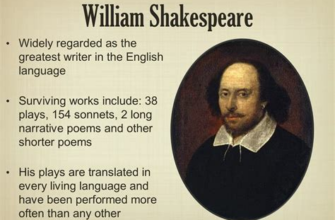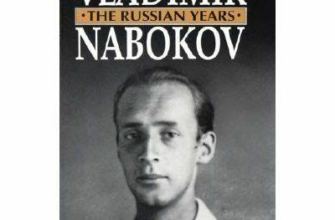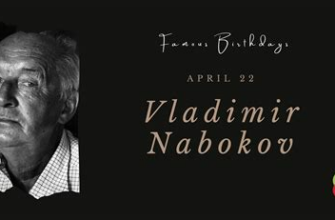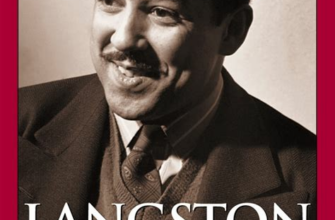Within the realm of literature and art, there exists an enigmatic figure whose profound impact on the world of creativity still resonates today. This extraordinary individual, whose name echoes through the annals of history, was unparalleled in his ability to wield the power of words, to craft intricate narratives, and to ignite the imagination of readers across the globe.
In this compelling exploration, we embark on a voyage through the life and accomplishments of a man whose genius surpassed the boundaries of time and space. Through the lens of his works, we will delve into the depths of his poetic brilliance, unravelling the intricate threads of his thoughts and ideas. Prepare to be captivated by the words that flowed effortlessly from his pen as we venture into the unparalleled world of John Milton.
Throughout the course of his illustrious career, Milton's pen became a conduit for the expression of his deepest beliefs and musings. His words, woven together with a kaleidoscope of emotion and intellectual prowess, transported readers to ethereal realms where realities blended and truth intermingled with fiction. Through his vivid imagery and profound insights, he painted a tableau of all-encompassing knowledge that propelled his readers into the depths of their own souls.
Join us as we begin our exploration of Milton's extraordinary life, from his humble beginnings to his remarkable rise as a literary icon. Discover his remarkable journey, from his early years filled with triumphs and tribulations to the moments of enlightenment that shaped his unique perspective on the world. Together, we will uncover the untold stories that shaped the mind of a visionary, allowing us to truly grasp the magnitude of his genius.
As we embark on this captivating journey, prepare to be inspired, enthralled, and enlightened. Together, let us peel back the layers of time and immerse ourselves in the life and works of a creative genius whose legacy continues to resonate through the corridors of literature and art.
Early Years and Education

In this section, we will delve into the formative years and educational journey of an exceptionally talented individual, examining the foundations of their intellectual growth and development.
During the initial phase of their life, this prodigious mind embarked on a voyage of discovery, navigating the early experiences that would shape their extraordinary future. Exploring the realm of knowledge, they thirsted for understanding and sought enlightenment through various educational endeavors.
From their earliest days, this singular individual exhibited a natural hunger for learning, displaying an insatiable curiosity that set them apart from their peers. Their youthful eagerness to explore a multitude of subjects sparked a fire within, igniting a passion that would guide them through the years to come.
Guided by a thirst for knowledge, this ingenious soul immersed themselves in the tutelage of esteemed mentors. The nurturing environment provided by these educators offered an invaluable opportunity for intellectual growth and acquisition of fundamental skills. Through a combination of formal education and informal pursuits, they honed their talents and expanded their cognitive horizons.
| Early Years | Education |
| Formative experiences | Enlightenment |
| Curiosity and exploration | Thirst for understanding |
| Inquisitiveness | Educational endeavors |
| Mentorship | Intellectual growth |
| Nurturing environment | Acquisition of skills |
Political and Religious Beliefs
Exploring the ideologies and convictions of John Milton, this section delves into his political and religious beliefs. It sheds light on the multifaceted nature of his philosophical worldview, highlighting his stance on matters pertaining to governance and spirituality.
Considering his political inclinations, Milton held steadfast to the principles of individual liberty, advocating for a just and egalitarian society. His writings fiercely championed the rights of citizens and their freedom from oppressive rule. With an unwavering commitment to republicanism, he denounced monarchy and sought to establish a government based on popular consent and representation.
- Milton's political treatises, such as "The Tenure of Kings and Magistrates" and "The Ready and Easy Way to Establish a Free Commonwealth," expounded upon his fervent belief in the sovereignty of the people and the necessity of checks and balances within a democratic system.
- He vehemently critiqued censorship and called for the unrestricted flow of ideas, as demonstrated in his famous work "Areopagitica," which championed freedom of the press and expression.
In addition to his political views, Milton's religious convictions were also central to his life and writings. A devout Christian, he grappled with theological questions, intertwining them with his political philosophy. Rejecting the authority of the Catholic Church, he embraced a Protestant stance, advocating for the individual's direct connection with God and the primacy of scripture.
- Milton's theological epic "Paradise Lost" explores profound themes of sin, redemption, and the nature of evil. It delves into religious narratives, reflecting his complex understanding of faith and his desire to explore the mysteries of divine providence.
- His controversial tractate "Of Religion, A Doctrine, and Discipline of Divorce" challenged the traditional views on marriage and divorce, reflecting his theological reflections on the sanctity of human relationships.
In examining John Milton's political and religious beliefs, it becomes apparent that his extraordinary mind encompassed a multitude of perspectives. From his passionate advocacy for political freedom to his profound exploration of religious and theological concepts, his writings continue to captivate and inspire scholars and readers alike.
Paradise Lost: A Masterpiece of English Literature

Embark on a journey through the realm of English literature as we delve into the extraordinary creation known as Paradise Lost. This timeless work of art, crafted by a literary virtuoso, weaves together intricate themes and captivating storytelling to offer readers a profound exploration of the human condition.
Paradise Lost, a magnum opus in the realm of English literature, emanates brilliance from its every word. With its masterfully woven narrative, it immerses readers into a captivating world of epic proportions. Milton, the ingenious author behind this literary gem, takes us on a transformative voyage through the celestial realms and the depths of hell, allowing us to contemplate profound philosophical dilemmas and the complexities of good and evil.
- Unveiling a mesmerizing tapestry of poetic imagery, Paradise Lost beckons readers to question the nature of destiny and free will, challenging the very fabric of religious ideology.
- Through the vivid portrayal of embattled angels and tragic heroes, Milton invites us to explore the fragility of human nature and the eternal struggle between virtue and temptation.
- With exquisite lyricism and unparalleled depth, Paradise Lost delves into the consequences of one's choices, illuminating the profound impact they can have on both oneself and the world.
- As we navigate the labyrinthine passages of this masterwork, we confront universal themes of loss, redemption, and the eternal quest for truth, reminding us of the intricacies of the human experience.
Paradise Lost is a work that transcends time, inspiring generations with its poetic grandeur and thought-provoking narrative. Its influence on the fabric of English literature cannot be overstated, and its enduring relevance continues to captivate readers, showcasing the uniqueness and brilliance of John Milton's literary genius.
Blindness and Continued Literary Achievements
In this section, we delve into the remarkable story of how John Milton's loss of vision served as a catalyst for his ongoing literary accomplishments. Despite the absence of visual perception, Milton's literary genius remained undiminished and even flourished as he navigated the world of darkness.
One might expect that losing one's sight would hinder a writer's ability to create, but Milton's experience challenges this assumption. Instead of succumbing to despair, he embraced his newfound circumstance, channeling his inner strength and resilience into his literary pursuits.
Milton's blindness, rather than becoming an obstacle, became a source of inspiration and motivation. It forced him to rely on his imagination and memory, heightening his sensitivity to language and the power of words. These hardships led him to develop profound insights and a unique perspective that would shape his literary works.
- Even without the ability to visually perceive the world, Milton's imagination painted vivid landscapes and characters, bringing life to his poems and writings.
- His keen understanding of the human condition allowed him to delve deeply into the complexities of emotions and moral dilemmas, capturing the essence of humanity in his works.
- Milton's use of rich symbolism and metaphorical language transcended the visual realm, engaging readers' senses and evoking powerful emotions.
- Through his mastery of poetic techniques, such as meter and rhyme, he crafted works that resonated deeply with audiences, despite the absence of visual imagery.
- Blindness compelled Milton to refine his other senses, fostering his heightened appreciation for music, allowing him to infuse his writings with rhythmic beauty.
Despite the challenges posed by his blindness, John Milton persevered, emerging as one of the most influential and revered literary figures of all time. His ability to transcend physical limitations and continue to create profound works serves as a testament to his genius and indomitable spirit.
Legacy and Influence on Future Writers

The lasting impact and profound influence of John Milton's formidable literary prowess on subsequent generations of writers cannot be understated. His unparalleled creativity and ingenious storytelling continue to shape the landscape of literature even today.
The ingenuity of Milton's writing lies not only in his masterful use of language, but also in his ability to explore profound philosophical and theological concepts. His works transcend their time, offering timeless reflections and insights into the human condition, morality, and the struggle between good and evil.
- Milton's epic poem, "Paradise Lost," challenges traditional religious narratives and fosters a reconsideration of the nature of God, the fall of humanity, and the concept of redemption.
- His lesser-known works, such as "Paradise Regained" and "Samson Agonistes," delve into themes of perseverance, heroism, and personal struggle in the face of adversity.
- Milton's intricate use of verse and poetic devices has inspired countless poets, from the Romantic period to modern times, to experiment with form and challenge established conventions.
- His exploration of political and social issues in works like "The Tenure of Kings and Magistrates" laid the foundation for the development of political philosophy and inspired subsequent writers to engage in thought-provoking debates through their literary creations.
- Additionally, Milton's unyielding pursuit of personal and artistic freedom, exemplified in his writing and political activism, continues to inspire writers to fearlessly express their thoughts and challenge societal norms.
Indeed, the legacy of John Milton resides not only in the words he penned, but also in the impact he had on generations of writers who followed him. His creative genius and profound insights have left an indelible mark on literature, ensuring that his influential spirit will continue to be felt for generations to come.
FAQ
What are some key highlights of John Milton's life?
John Milton's life was filled with notable events. He was born in London in 1608 and grew up during a time of political and religious unrest in England. He attended Cambridge University and later became a renowned poet, essayist, and political thinker. One of the significant events in his life was his involvement in the English Civil War, where he supported the Puritan movement and wrote passionate political tracts. Another notable aspect of his life was his gradual descent into blindness, which did not deter him from continuing his creative works until his death in 1674.
What are some of the famous works of John Milton?
John Milton is best known for his epic poem, Paradise Lost, which is considered one of the greatest literary works in the English language. He also wrote other notable poems such as Paradise Regained, Samson Agonistes, and Lycidas. Apart from poetry, Milton was also recognized for his prose works, including Areopagitica, a powerful defense of free speech and press. His literary contributions solidified his reputation as a creative genius and influenced subsequent generations of writers.
How did John Milton's political beliefs influence his writing?
John Milton's political beliefs played a significant role in shaping his writing. He was a staunch supporter of the Puritan revolutionaries and held strong republican views. His works, particularly his political tracts, reflected his ideals of individual liberty, religious freedom, and the importance of moral virtue in governance. Milton's writings advocated for the abolition of monarchy and the establishment of a more equitable society. His political beliefs and convictions greatly influenced the themes and messages found in his literary works.
What challenges did John Milton face in his life?
John Milton faced several challenges throughout his life. One of the biggest obstacles he encountered was his gradual loss of eyesight, which eventually left him completely blind. Despite this immense physical limitation, Milton continued to write through the use of amanuenses. Additionally, he lived during a time of political and religious turmoil, which affected his personal and professional life. He faced opposition and criticism for his political views and writings, and his works were sometimes censored or banned. Despite these challenges, Milton's determination and genius persevered, and he left a lasting impact on the world of literature.
What is John Milton's legacy?
John Milton's legacy is one of immense literary significance. His works, particularly Paradise Lost, continue to be studied and revered by scholars and readers worldwide. Milton's writings explored complex themes such as the nature of good and evil, the struggle for free will, and the power of language. He is considered a pioneering figure in English literature and his influence can be seen in the works of subsequent writers such as William Blake and Mary Shelley. John Milton's legacy also extends to his contributions to political thought and his unwavering commitment to freedom of expression, which continues to inspire individuals today.



